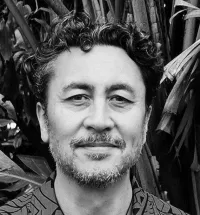Fellowships
Fellowships offer direct support to researchers engaged in research endeavours within Aotearoa.
Below are our Fellowship Recipients.
2025
Pacific childhood experiences and their influence on metabolic and mental health: a holistic study of risks and protective factors
Massey University
Amount awarded: $740,749
Pacific Fellowship
This study aims to explore how childhood experiences—both negative (adverse) and positive (beneficent) can impact long-term health for Pacific young adults. Research has shown that negative childhood experiences, like abuse or neglect, can increase the risk of heart disease, diabetes, and mental health challenges in later life. However, positive experiences, such as strong family support, cultural connections, and resilience, may help to protect against these risks.
Pacific cultures, with their emphasis on community, family, and spirituality, offer unique strengths that could buffer the negative impacts of childhood adversity and long-term health conditions. By using the Fonofale model, a holistic framework for Pacific health, this research will explore what cultural factors can promote resilience and reduce metabolic and mental health risks.
The study will involve 100 Pacific adults aged 20-34 years old, examining both measurable health outcomes (eg, blood pressure,glucose levels and mental health) and personal stories that can provide insights of resilience factors. Findings from this study will help shape culturally relevant health strategies that contribute to reducing the risk of metabolic syndrome and mental health struggles. This research has the potential to guide public health approaches that are both effective and culturally appropriate for Pacific communities, addressing significant health inequities

Penina Hitti
2025
Improving cardiovascular health for Māori and Pacific people engaging with Buttabean Motivation’s ‘From The Couch’ programme
Ngā Puhi, Samoa. University of Auckland
Amount awarded: $966,825
Pacific Fellowship
Obesity poses the greatest cardiovascular risk for Māori and Pacific populations in Aotearoa New Zealand. Despite efforts to promote weight loss and lifestyle changes, these communities continue to experience higher levels of obesity and related comorbidities compared to non-Māori, non-Pacific populations.
This Fellowship will evaluate the “From the Couch” (FTC) health programme run by the Maori-Pacific driven community organisation, Buttabean Motivation (BBM). The programme provides intensive wraparound support to community members living with extreme obesity who want to improve their health and wellbeing. The Fellowship will follow a cohort of FTC participants for two years, investigating clinical markers such as blood sugar and cholesterol, and evaluating the benefits of engaging in the programme.
Other health measures, such as mental wellbeing, spiritual health, and social relationships, will be examined to determine the effects of participating in BBM’s much sought-after programme. Although open to all ethnic groups, BBM uses Māori and Pacific approaches to hauora to create a safe space for these communities to engage socially while participating in exercise and nutrition classes, and other social supports like work ready programmes.
The findings from this research will add to the body of evidence demonstrating the value and impact of using Kaupapa Māori and Pacific concepts for delivering health services and culturally appropriate research for these communities.

Dr Fa'asisila Savila
2025
Ōtaki awa: He manawa whenua
Ngāti Raukawa ki te Tonga, Ngāti Rangitihi, University of Otago
Amount awarded: $765,430
Māori Fellowship
Ōtaki awa: He manawa whenua is a call to action to connect whānau to our tupuna awa (ancestral river), the Ōtaki Awa (Ōtaki River), through participating in Kauora (a whānau created swimming kaupapa) to improve the heart health of our whānau. The awa are the heart of our taiao (environment); our manawa whenua . Our manawa whenua in Ōtaki are the waterways and whakapapa of the Ōtaki Awa and the Waitohu Awa that flow through our whenua to sustain and nourish our whānau, hapū and iwi.
Kauora is a whānau and hapū based kaupapa that engages whānau with our awa through our whānau understanding and approach to swimming. Ōtaki awa: He manawa whenua aims to improve the cardiovascular health of our whānau through Kauora, learning mātauranga pertaining to Ōtaki awa. This project will engage with one stream of our current Kauora kaupapa: Ngā kaitiaki (whānau 16+), emphasising whakapakari ki rō wai for the heart health of our whānau members and re-engaging whānau with mātauranga o te wai through swimming in our tupuna awa, engaging in te reo o te taiao, and mātauranga of the awa. Through this research, whānau will learn about the benefits of Kauora for cardiovascular health and fitness and the importance of engaging with our taiao for the hauora of our people.
2023
Redefining references ranges for heart health in Aotearoa
University of Auckland
Amount awarded: $843,039
Cardiac magnetic resonance imaging (MRI) is widely used to assess cardiovascular function in health and disease. It is regarded as the gold standard for non-invasive measurement of heart size, morphology, and function. Essential to assessment with MRI is knowledge of the “normal” ranges for cardiac size, mass, and volumes, which vary naturally with age and body mass composition, which in turn are influenced by sex and ethnicity. These ranges provide important threshold values for diagnosis, prognosis, and ultimately clinical decision-making.
Although these have been defined for European populations, MRI reference ranges specific to Māori and Pacific populations do not yet exist. The use of the current non-representative guidelines results in missed or incorrect diagnosis of heart disease for Māori and Pacific Peoples. This delays treatment and adversely affects patient health. There is a critical and urgent need to establish appropriate normative reference values for cardiac assessment.
2022
Improved targeted framework for gestational cardio metabolic management among Māori and Pasifika women
University of Auckland
Amount awarded: $571,156
Gestational diabetes is the most common complication associated with pregnancy and it has a direct impact on the future cardio-metabolic health of the mother and the child. Cardio-metabolic diseases are responsible for most of the gap in life expectancy and are associated with higher hospitalisation and mortality rates for Māori and Pasifika in Aotearoa New Zealand. The age of onset of cardio-metabolic conditions is also significantly younger in Māori than in non‐Māori New Zealanders and the incidence of these conditions continues to increase.
This research will develop a targeted framework for better screening, management and follow-up of Māori and Pasifika women with gestational diabetes by utilising community partnership and co-design principles and understand crosstalk between placenta and sympathetic nervous system in the development of gestational diabetes. It has the potential to identify ways to prevent and/or treat gestational diabetes. Reduced incidence of gestational diabetes will break the vicious circle that perpetuates the transmission of cardio-metabolic diseases to future generations.
2022
Equity-focused discharge planning for heart failure
Kolomotu'a and Neiafu, Tonga. University of Auckland
Amount awarded by Pūtahi Manawa: $429,965
Amount awarded by Heart Foundation: $192,930
Pacific Fellowship
Disparities in outcomes for Māori and Pacific people with heart failure are stark, with significantly higher hospitalisation, readmission and mortality rates compared to non-Māori, non-Pacific people. Heart failure is a chronic syndrome where successful management involves effective communication between patients/whānau and their healthcare providers and coordinated care across providers and systems. While discharge planning is a crucial phase in the overall care of heart failure, there are opportunities to improve current practices.
This investigation focuses on optimising discharge planning and interface between hospital-level and community care for heart failure, particularly for Māori and Pacific patients/whānau. The aims of this research are to gain a comprehensive picture of discharge planning for heart failure across public hospitals in Aotearoa New Zealand and determine approaches to discharge planning that work best for Māori and Pacific heart failure patients.

